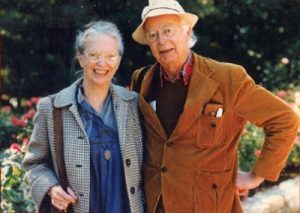Art History Undergraduate Awards, Prizes, Scholarships
The John and June Allcott Undergraduate Travel Fellowship enables two students–one in art history and one in studio art–to travel in pursuit of an independent, career-related project within the United States or Abroad* during the summer.
* Effective February 21, 2023, undergraduate international travel outside a study abroad program has resumed through a new, centralized process administered by the College of Arts and Sciences (for all undergraduate students regardless of school or college).
Undergraduate students may initiate a request for approval of their independent education abroad activities through the HeelsAbroad portal administered by the Study Abroad Office: https://go.unc.edu/independent-edabroad. A complete request for approval must be submitted no later than 30 days prior to the student’s departure date.
All travel will be reviewed for academic merit and risk and must be approved by the provost before any funding may be released or travel proceeds. Travel will only be approved to countries with a U.S. Department of State Level 1 or 2 Travel Advisory. Level 3 countries will generally not be approved except under exceptional circumstances.
Contact Jason Kinnear, Associate Dean for Study Abroad and Exchanges (jason.kinnear@unc.edu) if you have questions.
Eligibility:
Currently enrolled UNC-Chapel Hill Sophomores, Juniors, and Seniors* are eligible to apply, but preference may be given to majors in the Department of Art and Art History and to juniors. All applicants must have taken courses in the Department of Art and Art History. Students are encouraged to work with a faculty advisor in the Department in preparing their application.
*Seniors are eligible if they are returning for the fall semester.
Amount of the Awards:
$4000
Terms of Award:
Applicants must be available for interviews at UNC-Chapel Hill on Monday, April 15th, 2024.
Fellows will be expected to:
- Be enrolled at UNC-Chapel Hill for the fall 2024 semester.
- Use the award during the summer of 2024 as described in their project proposal.
- Present a written and oral report in the spring semester (2025) after their return.
Basis for Selection:
The Department of Art and Art History coordinates a Selection Committee that will select finalists for interviews. The best candidates are those who indicate their interest in an independent study project that is tied to their personal and career aspirations. Motivation for travel/study as a learning experience and excitement about the project are also significant factors. Strong consideration will be given to candidates whose university records demonstrate academic rigor. Projects should be well-considered and researched for feasibility and cost factors. The Selection Committee will also take into consideration a student’s financial needs to pursue the project.
Application Process:
Updated application forms will be are available in Spring 2024 on the Undergraduate Policies, Procedures, and Resources section of the Department of Art and Art History website.
Deadline:
Completed applications and all accompanying documents must be submitted to the Department of Art and Art History Office, Hanes Art Center 101, no later than 4:00 PM, Monday, April 8th, 2024.
Depending on the number of applications, semi-finalists will be announced and contacted to schedule an interview with the Selection Committee. Interviews will take place on Monday, April 15th, 2024.
This fund supports both Studio Art and Art History undergraduate student research in the Department of Art and Art History. Research is broadly defined, and students may apply for funds to subsidize individual research or special group research projects that fall outside routine class work. This can include things like purchase of materials, travel to conferences or research sites, support for group or individual exhibitions, including rentals of exhibition spaces. Proposals may be submitted by individual Studio Art or Art History majors or official undergraduate student groups in the Department of Art and Art History. In general, to be considered for funding, projects are typically extracurricular, or beyond what might be normally expected for a class assignment. Projects might be exceptional in their scale and should have potential for lasting impact. Applicants must provide some explanation of their need. Petitions for funding are reviewed by the Undergraduate committees in Studio Art and Art History. Studio Art and Art History majors apply directly to the Director of Undergraduate Studies in their area. In addition, faculty can apply for Pearman funds to enable special projects associated with a class such as field trips or subvention for speakers if such projects relate directly to student-generated research. This relationship must be clearly articulated in the application. Applications are ongoing, and awards typically range from $100-$500, depending on available funds and demand. The fund was established by a generous donation of Herbert Brown Mayo in memory of his aunt, Beatrice B. Pearman.
Download ApplicationRECENT PEARMAN AWARD WINNERS:
Art history major Katherine Lilley (2002-03) used the funds she was awarded to travel to Princeton University, where she studied depictions of Mary Magdalene from the tenth through the thirteenth centuries in Western Europe. At Princeton, Katie was able to access the Index of Christian Art, a photographic archive of Christian art from ca. 200 C.E. to 1450 C.E.
Valerie Bruchon (2002-03), a studio art major, traveled with a group of Professor Jeff Whetstone’s photography students to Kentucky. There, with the help of funding provided by a Rockefeller PACT grant, the students facilitated photography programs in local schools. When the group returned to UNC, Valerie used the Pearman funding she received to organize, edit, and print the 700+ images made by the students during the trip. The photographs were then exhibited in May, 2003, in Harlan, Kentucky.
Studio art major Deborah Dorland Bradley (2003-04) used the funding to develop and produce her Honors Thesis Project, “The Passion of the Mother,’ which through installation and performance explored the role of women in the world’s largest monotheisms: Islam, Judaism, and Christianity.
ALLIE SCALES REPORTS ON HER 2005 SURF PROJECT
Summer of 2005 was very special for me. I spent several months following my passion while advancing my major. This opportunity was given me by the Summer Undergraduate Research Fellowship (SURF) Program. In the Spring semester I crossed my fingers and submitted a research proposal to the Office of Undergraduate Research, in competition with a number of other students. When I was chosen to receive a SURF award I (metaphorically!) threw my hat in the air. It was a tremendous feeling to be embarking on a well-financed self-directed project that excited and intrigued me. My interests? The stories that paintings tell about their contexts and their artists, and research that would draw attention to the neglect of women artists in the his-stories of Art. My project? To learn how to research the provenance of artworks by retracing their histories. Serendipitously, following a UNC class in Women in the Arts which introduced me to artists I hadn’t known, I came across a painting that gave me the raw material for my search, a locally owned copy of an Elisabeth Vigée Le Brun original. Using this picture as my subject I spent the summer communing with art, books, experts, museums and those whose lives had been entwined with this painting. I was a total art geek! I have produced a brochure for the museum that owns the painting, and to prolong the fun, I plan a later trip to European museums to see Vigée Le Brun originals.
I was particularly confident knowing I was supported in this venture by an advisor, Prof. Mary Sheriff, who has special expertise in the artist, and by my enthusiastic graduate mentor, Sally Tomlinson.
Allie Scales, BFA

